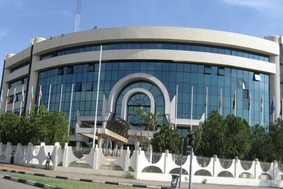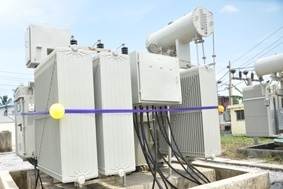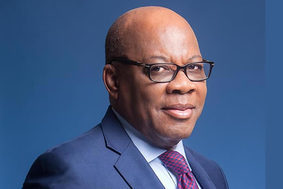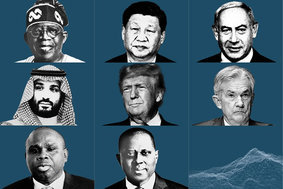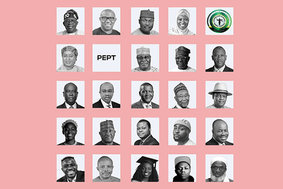Nigeria’s oil output to remain depressed in much of 2016
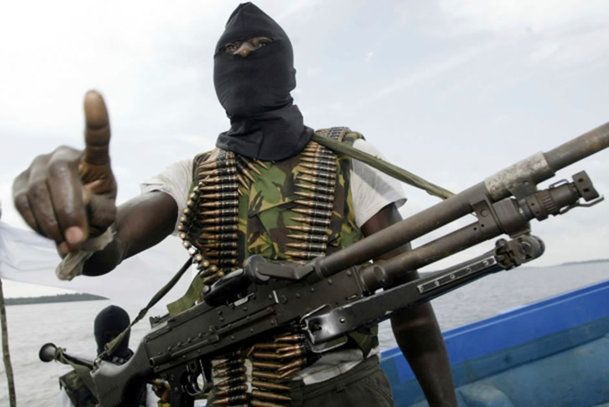
Feature Highlight
PGI Intelligence reiterates British Foreign Secretary Philip Hammond view that military response to the militants would have limited benefits.
Summary
• Nigerian oil output will remain subject to major outages for at least the next 12 months in the face of a surge in pipeline attacks that have demonstrated a high degree of technical proficiency on the part of the attackers.
• Little is known of the Niger Delta Avengers, the group that has claimed responsibility for many of the attacks, but its emergence could indicate a new generation of militants in the Niger Delta with potentially long-term implications for Nigeria’s oil and gas industry.
• Pipeline attacks are likely to continue at their current frequency in at least the short to medium term, and the security situation could deteriorate further if a government crackdown on suspected militants provokes a broader backlash.
A wave of attacks on pipeline infrastructure in the oil-rich Niger Delta since the beginning of 2016 has had a devastating impact on Nigeria’s crude output. On 18th May, Nigeria’s oil minister Emmanuel Ibe Kachikwu reported that production had fallen 40 percent from 2.2 mn barrels per day (bpd) to 1.4 mn bpd, the lowest level since the mid-1990s.
Among the most significant attacks was the bombing of the Forcados Terminal subsea crude pipeline in February, which resulted in estimated losses of 200,000-300,000 bpd. An attack on Chevron’s Okan platform in Delta State in early May forced the company to close the facility at a cost of a further 90,000 bpd. In both cases, a little-known group called the Niger Delta Avengers (NDA) claimed responsibility. Responding to the threat, both Shell and Chevron have evacuated non-essential staff from several facilities across the region.
These incidents have raised fears of a renewed insurgency in the southern region, as such large and sophisticated attacks have been rare in the Niger Delta since the Presidential Amnesty Programme (PAP) for militants was introduced in 2009. Although the programme had some success in reducing the levels of violence by providing stipend payments, training placements, and lucrative pipeline surveillance contracts to militants, it has faced persistent criticism for failing to address the economic and political grievances that fuelled the conflict. As a result, former militant groups have continued to engage in oil theft, kidnap for ransom, and piracy throughout the amnesty period, while hostility towards the federal government continues, evident in sporadic attacks on state security personnel.
These failings have been exacerbated by the election of President Muhammadu Buhari – a Muslim leader from the north – in March 2015 to succeed Goodluck Jonathan, who hails from the predominantly Christian Niger Delta, which has proven deeply contentious at a time when the government is looking to phase out the amnesty payments. Although Buhari extended the PAP for 12 months beyond its planned expiration in December 2015, many stipends are already going unpaid due to the impact of low oil prices on state finances.
A government crackdown on illicit activities in the Niger Delta has also risked stoking tensions among militant groups in the region. Since assuming office, Buhari has taken steps to curb some of the most blatant instances of corruption in the military by reorganising the Joint Task Force in the Niger Delta, which in turn has disrupted a vital component of the smuggling networks that many criminal groups rely on to move stolen oil. An arrest warrant issued for former militant leader Government Ekpemupolo (known as “Tompolo”) by a federal court on 14th January has been seen as further provocation.
Tompolo was the most powerful figure in the rebel umbrella group, the Movement for the Emancipation of the Niger Delta (MEND), during the 2004-2009 conflict and one of the main benefactors of the PAP. He remains at large and the government’s efforts to arrest such an influential figure has attracted considerable controversy in the region.
Niger Delta Avengers
As yet, little is known of the NDA – the most prominent militia involved in the latest wave of attacks – but it is clear the group presents a serious threat to oil and gas operations in the Niger Delta. The attack on the deep-water Forcados pipeline, in particular, demonstrated a high degree of technical capacity, given that it occurred at some distance from the shoreline and required deep-sea divers and sophisticated explosives.
There are several plausible explanations as to how the group acquired this capability, including through diving and engineering training programmes made available through the PAP, formal military training, or by sub-contracting the attack to a more experienced militant group.
The political motivations of the group and its leaders, however, are less clear, as the NDA does not reveal the identities of its leaders. The Nigerian army said on 16th May it had arrested five members of the group in Tompolo’s home region of Gbaramatu, although it is unclear what evidence the arrests were based on. Initially, there had been widespread suspicion that the NDA was linked to Tompolo, given that many of the attacks came shortly after the arrest warrant was announced. Tompolo has, however, denied any link to the NDA, while the group itself has been openly critical of the former militant leader. On 5th May, the NDA issued Tompolo a three-day ultimatum to retract a statement that oil companies should continue their operations as normal or they would attack oil installations in Gbaramatu. Tompolo rejected the ultimatum, although major retaliatory attacks in Gbaramatu are yet to materialise.
The public breach between the NDA and Tompolo could be an indication that the group represents a younger generation of militants frustrated with the limited benefits available under the amnesty programme. In its public pronouncements, the NDA has been critical of the PAP’s failure to resolve the political and economic grievances of the Niger Delta and the vast wealth it has diverted to certain MEND leaders, including Tompolo. Such rivalries have the potential to provoke wider violence in the Niger Delta, if the NDA increase the frequency of their attacks on the oil and gas industry in order to reinforce their position as the ascendant militant group.
Outlook
There is a strong likelihood that the high frequency of attacks on oil infrastructure will continue at least in the short to medium term, resulting in depressed oil output over much of 2016. On 12th May, the NDA issued oil companies a two-week ultimatum to shut down operations in the Niger Delta or face attacks. Another previously unknown group, the Red Egbesu Water Lions, issued its own seven-day ultimatum on 18th May, shortly after blowing up an Agip pipeline in Bayelsa, and also pledged allegiance to the NDA.
Recent incidents have demonstrated the NDA’s technical competence, and future attacks could continue to involve more complex operations, including on oil installations in deep-water blocks where many international oil companies currently operate. Onshore, the majority of the NDA’s attacks have focused on Delta State and installations there will remain at greatest risk, although installations in the area around Port Harcourt have also been targeted.
In the months ahead, the government’s handling of its crackdown on militants will be key to determining whether violence will escalate to the levels seen during the 2004-2009 insurgency. On 20th May, Buhari said that he would strengthen the military presence in the Niger Delta by reorganising and bolstering the Joint Task Force, though many observers, including British Foreign Secretary Philip Hammond, have warned that military action would have limited benefits. Government operations in Gbaramatu and Ogoniland (a focal point of the MEND insurgency) have already provoked considerable anger among local communities that could provide broader support for militant groups. Any large-scale confrontations resulting in mass fatalities or major reports of human rights abuses risk fuelling these political tensions and could lead to the emergence of additional groups in the Niger Delta.
Other Features
-
At 50, Olajide Olutuyi vows to intensify focus on social impact
Like Canadian Frank Stronach utilised his Canadian nationality to leverage opportunities in his home country of ...
-
Reflection on ECOWAS Parliament, expectations for the 6th Legislature
The 6th ECOWAS Legislature must sustain the initiated dialogue and sensitisation effort for the Direct Universal ...
-
The $3bn private credit opportunity in Africa
In 2021/2022, domestic credit to the private sector as a percentage of GDP stood at less than 36% in sub-Saharan ...
-
Tinubunomics: Is the tail wagging the dog?
Why long-term vision should drive policy actions in the short term to achieve a sustainable Nigerian economic ...
-
Living in fear and want
Nigerians are being battered by security and economic headwinds. What can be done about it?
-
Analysis of the key provisions of the NERC Multi-Year Tariff Order ...
With the MYTO 2024, we can infer that the Nigerian Electricity Supply Industry is at a turning point with the ...
-
Volcanic explosion of an uncommon agenda for development
Olisa Agbakoba advises the 10th National Assembly on how it can deliver on a transformative legislative agenda for ...
-
Nigeria and the world in 2024
Will it get better or worse for the world that has settled for crises?
-
The Movers and Shakers of Nigeria 2023
This special publication profiles 25 people and institutions based on their societal or industry impact in 2023.
Most Popular News
- IFC, partners back Indorama in Nigeria with $1.25 billion for fertiliser export
- Ali Pate to deliver keynote speech at NDFF 2024 Conference
- Univercells signs MoU with FG on biopharmaceutical development in Nigeria
- CBN increases capital requirements of banks, gives 24 months for compliance
- CBN settles backlog of foreign exchange obligations
- Nasdaq Dubai welcomes $600m sukuk listing by Islamic Development Bank


